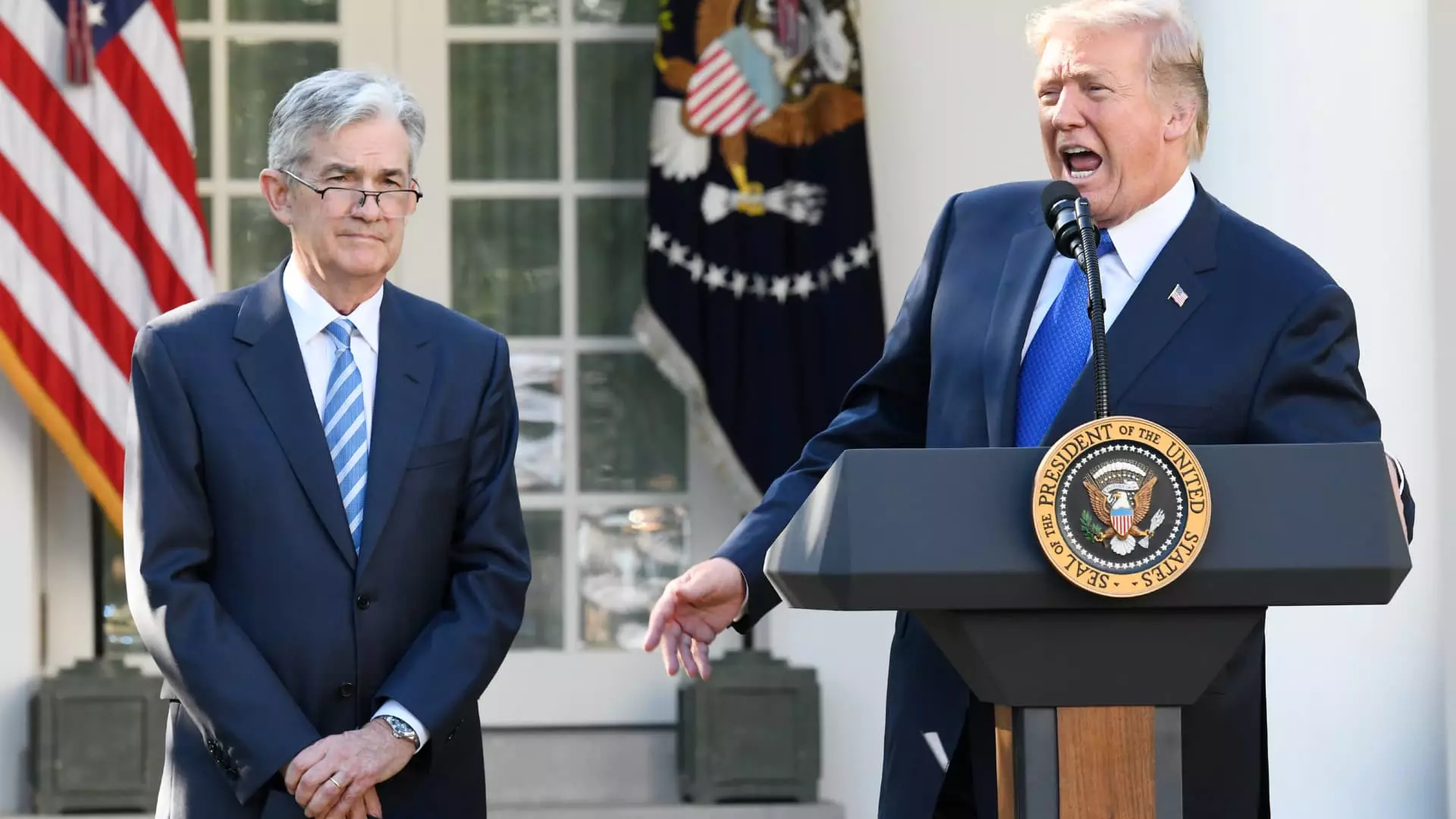The world of economics is complex, often hinging on a delicate balance that can lead to cascading effects across markets, businesses, and everyday lives. President Donald Trump’s recent insistence on urging Federal Reserve Chairman Jerome Powell to enact an aggressive 1% cut to interest rates, even amidst a solid jobs report, raises eyebrows in more ways than one. Rather than responding to the realities of an economy that’s showing resilience, Trump’s impulsive approach seems more like a dangerous game he’s playing for short-term political gain, rather than a strategy grounded in sound fiscal policy.
It’s baffling to consider why the president feels compelled to push for such drastic measures when indicators suggest that the labor market is outperforming expectations. The Bureau of Labor Statistics’ report indicating a rise of 139,000 jobs in May significantly outpaces predictions of 125,000. Under normal circumstances, a bustling job market would be a cause for celebration, not the perplexing backdrop for unwarranted calls for drastic monetary intervention. It’s this detachment from reality that makes Trump’s economic commentary seem less like pragmatism and more like a troubling detonation of long-held fiscal doctrines.
The Gamble of Rate Cuts in Uncertain Times
Trump’s call for a 1% interest rate slash suggests a reckless disregard for inflationary pressures that often rise in correlation with increased borrowing. To propose such sweeping cuts when the risks of inflation loom over the economy is not merely naive; it borders on irresponsible. The European Central Bank (ECB) made its decision to lower rates not in isolation but as a calculated response to a weakening economy and rising inflation signs. Trump’s oversimplified reasoning—”Go for a full point, Rocket Fuel!”—is dismissive of complex economic conditions that require nuanced understanding.
Furthermore, while it’s tempting to equate rate cuts with prosperity, one must examine the long-tail effects of such actions. Lowering rates superficially makes loans cheaper, yet it can incentivize reckless borrowing, leading to asset bubbles and unsustainable growth. Trump argues that reducing rates will ease the burden of debt, yet he fails to recognize that cheapening money often introduces toxic behaviors into the financial ecosystem—like those that sparked the 2008 financial crisis.
The Illusion of Isolation from Global Trends
Trump’s grievances extend to comparisons with other central banks, where he expresses frustration that the Federal Reserve has not aligned its policies with those of its international counterparts. Yet this line of reasoning ignores one fundamental truth: economic conditions are never homogeneous. The ECB’s rate cuts reflect their own economic realities, and conflating those with domestic needs is an oversimplification that could endanger the U.S. economy’s foundational stability.
When Trump states, “He is costing our Country a fortune,” about Powell, it feels disingenuous, as the lamentations of lost fortune lack tangible grounding in economic reality. In the U.S., any effort to bend the Fed to political will reveals a fundamental misunderstanding of the purpose of independent central banking. Lowering interest rates should not be seen as a tool to appease politicians but as a careful calibration based on economic signals and indicators that transcend party lines.
Political Posturing vs. Economic Pragmatism
The political stakes surrounding Trump’s continued pressure on the Fed cannot be ignored. His steadfast belief that “the U.S. economy is doing great” stands in stark contrast to the conservative fiscal principles that define economic stewardship. Instead of addressing structural inefficiencies or focusing on sustainable growth strategies, peddling for instant gratification in the form of rate cuts serves a narrowly-focused agenda.
While claiming the economy thrives “despite him,” he undercuts the very essence of economic resilience—a collaborative approach that requires bipartisan understandings and long-term vision. Political posturing fueled by short-term expedience does not foster robust economic environments; rather, it generates an unstable climate that can discourage investor confidence and lead to unpredictable market behavior.
Trump’s recent calls for sweeping interest rate reductions reflect an unanchored approach that neglects the broader implications for monetary policy and economic well-being. If liberalism teaches us anything, it’s the importance of informed, rational economic dialogue that prioritizes stability and shared prosperity over impulsive decision-making. In a complex world rife with challenges, more than ever, we must advocate for policies that align with economic realities rather than political whims.

Leave a Reply